 Dieter: ★★★½
Dieter: ★★★½
Jim: ★★★
“Meals on Wheels.”
Note from Jim: A slightly different approach here, with Dieter and myself collaborating on this review, so it’s going to be more of a back-and-forth, and also rather longer than our usual reviews! So get a cup of coffee… And a sandwich. :)
Top of the Flops?
Mortal Engines did, indeed, prove very mortal. Variety estimated it would possibly lose $125 million. The film failed to make back even its $100 million budget worldwide, never mind marketing costs, closing out at a mere $82 million. Let’s start by discussing cinematic failure in general.
Dieter: Sometimes it seems a film’s fate is decided before anyone has actually seen it, or before countless movie reviewers copy what other movie reviewers already wrote. It becomes a meme, repeated by everyone and spreading like a virus, until it becomes a reality and the respective movie then really flops or becomes a great success. A couple of years ago, when the first trailer for the Edgar Rice Burroughs’ adaptation John Carter came out, people saw the fight between the hero and the giant white gorillas in the trailer and decided it was a Star Wars rip-off, John Carter was done. Not even I watched it in the cinema. I regretted that later when discovering the movie on DVD and found it to be a sympathetic, enjoyable SF-actioner.
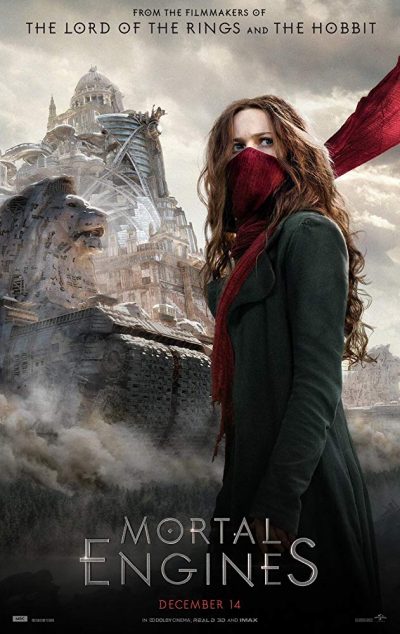 My theory is this: A potential cinemagoer sees a trailer and immediately decides whether or not they will like a movie – or at least give it a chance. And it’s usually not a rational choice, just a gut feeling, a kind of “I like it, that looks good / funny / exciting,” or “Nah, that’s nonsense / stupid / don’t like that actor / actress”, etc. Afterwards people try to rationalize why, and come up with a lot of different reasons that – when looked more closely at – are not that logical at all. I think this also is true for a lot of reviewers.
My theory is this: A potential cinemagoer sees a trailer and immediately decides whether or not they will like a movie – or at least give it a chance. And it’s usually not a rational choice, just a gut feeling, a kind of “I like it, that looks good / funny / exciting,” or “Nah, that’s nonsense / stupid / don’t like that actor / actress”, etc. Afterwards people try to rationalize why, and come up with a lot of different reasons that – when looked more closely at – are not that logical at all. I think this also is true for a lot of reviewers.
I do remember that in the 80s, we used to go into a movie without prior knowledge other than maybe a poster or trailer. We either liked it or not, and that was it. Now – and I’m as guilty as anyone – we read and watch countless reviews, look at sites like rottentomatoes and try to “nitpick”. If there is a single little thing we don’t like or consider as flawed, it increases exponentially in size for us compared to other aspects, and we end up discounting a movie entirely, due to this one element. This may be why it feels we have a tougher time just enjoying movies today.
Jim: There are times when it does feel almost pre-determined that a film will bomb: it’s rare for a “surprise flop”. I think marketing has become much more of an exact science these days, to the point that a film’s opening weekend can usually be projected fairly accurately beforehand. John Carter is a good example of a film which was dead on arrival. There’s no apparent logic to it, in terms of quality. I mean Cutthroat Island is not great, but it’s decent enough. I could name half a dozen worse movies, without leaving Michael Bay’s filmography.
Yet, not all flops are equal, it seems. Browse Wikpedia’s list of box-office bombs for the last couple of years. Notorious, well-known bombs like Valerian, The Mummy and Geostorm. But potentially worse than any of those was… A Wrinkle In Time? They kept that a bit quieter – the paranoid in me suspects because it went against the multicultural narrative being pushed with the success of Black Panther. But even there, it was not a surprise, least of all to Disney.
But specifically, where did Engines break down?
Mortally wounded
Dieter: When the first trailers for this Young Adult Sci-Fi/Steampunk book adaptation with franchise ambitions came out, a majority of online reviewers reacted with “Cities on wheels that devour other cities? Nah, that’s stupid nonsense – much too fantastical!”. Insert a rant from me how audiences are able to accept many other VERY fantastical and nonsensical concepts. They clearly didn’t have this problem with Into the Spider-verse or Aquaman. Still, something didn’t “click” with them and that may have been the death knell for this movie, regardless of its qualities or failings. That’s kind of regrettable, I think. Despite the movie’s undoubted flaws, it actually offers an interesting new concept.
Maybe audiences don’t really want something new. They want something that feels fresh and new – but essentially is still the same. It’s a strange kind of contradiction that is difficult for film studios to deal with. For all its shortcomings, The Last Jedi tried to do something new, and split the fandom (I didn’t like this movie either, by the way!). On the other hand, James Bond is a series that has obviously managed to re-invent itself again and again, yet still maintains most of its core audience. So count me among the people who don’t think that cities on wheels is too bonkers a premise!
Jim: It wasn’t helped by an almost complete lack of star power. Beyond Hugo Weaving, it has a guy who gets killed early in Resident Evil and Balon Greyjoy. [I’m excluding Stephen Lang, whose role is…limited, shall we say] This is also a difficult concept to get over quickly, in a way that (as Dieter notes) doesn’t sound silly, and that’s what films need to do in order to create momentum. ‘From the producers of Lord of the Rings’ doesn’t hold nearly as much weight as it did, considering it’s now 15 years since the end of that trilogy.
And live-action fantasy generally has had a rough go of it lately. The Dark Tower. Seventh Son. Pan. The BFG. All based from reasonably popular literature with a built-in audience. All released since the start of 2015. All bombs. Counter-examples of commercial success over the same time are hard to find, save Harry Potter prequels and Disney’s live-action efforts such as Beauty and the Beast. If people want fantasy, these days it seems as if they turn on Game of Thrones instead.
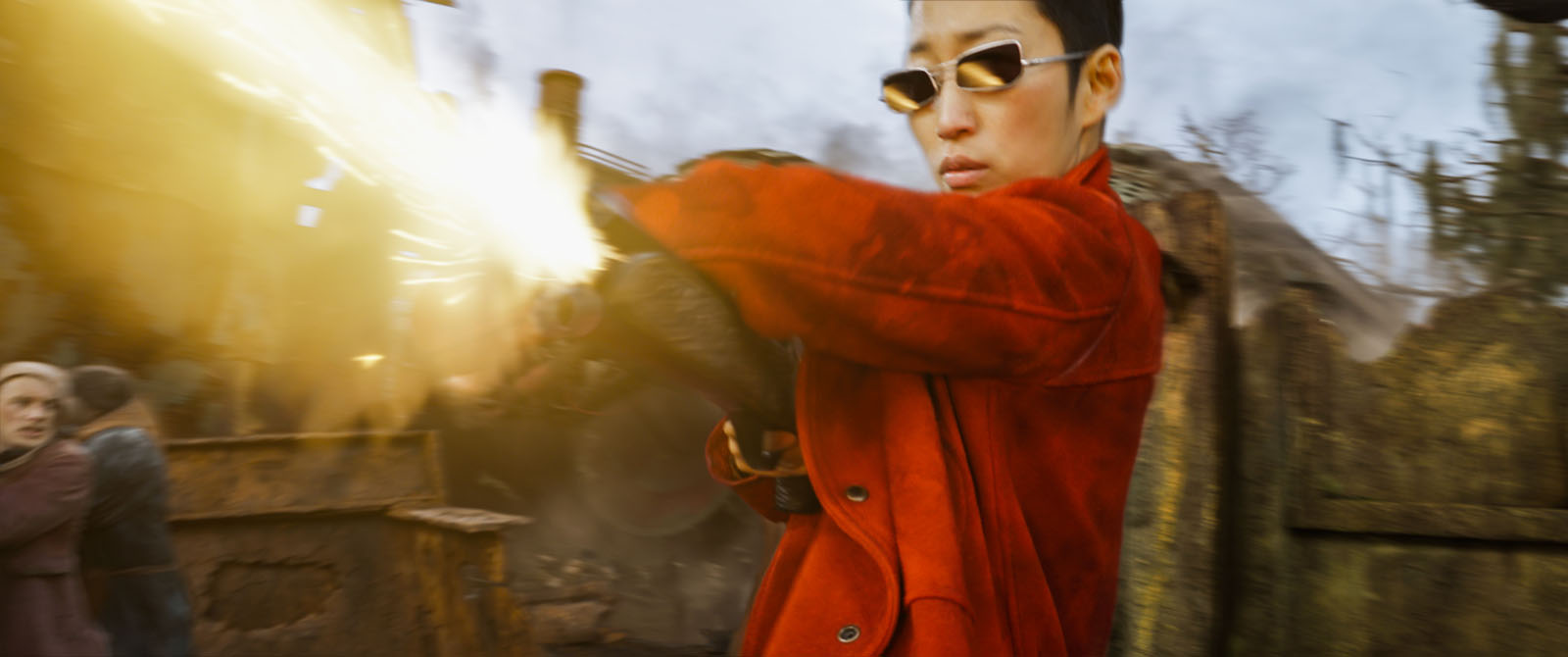
The play’s the thing…
Thousands of years in the future, after something called “The 60-minute war”, the knowledge of our world today has been lost. But new technology has enabled mankind to put their cities on wheels. These predators now roll over the wasted earth and “devour” other cities, to get the resources necessary to function, in what is called “municipal Darwinism”.
In one such hunt, Hester Shaw (Hilmar) boards London. A mysterious woman with a red scarf over her face – strangely, no one ever seems to find that suspicious! – she attacks Thaddeus Valentine (Weaving), Head of the Guild of Historians, in a failed assassination attempt. She escapes by dropping into an exit shaft, shortly followed by historian assistant Tom Natsworthy (Sheehan), pushed in by Valentine after overhearing Hester’s claims he killed her mother.
Together the mismatched pair try to get back to London, and stop Valentine, who is trying to put together an old superweapon in order to destroy the “Great Wall” in the East. Beyond it, the so-called “anti-tractionists” still have static conurbations, which would offer great food for London. Meanwhile, on Hester’s trail is Shrike, a re-animated cyborg who wants to punish her for for not keeping a promise to join him in cyborgness.
Been there, seen that…
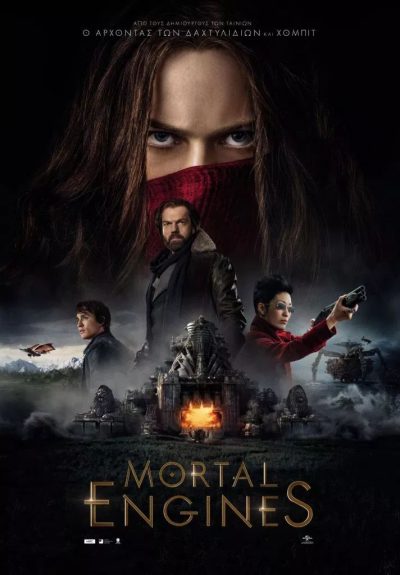 Dieter: You can already predict how this will develop – and that’s one of the big shortcomings: We know this plot and many of its tropes too well, leaving too little of any element of surprise. For some people that’s already enough to discard the movie; though I understand that, I’d always argue it’s not the best reason. Still, there are elements reminding me directly of Hayao Miyazaki classics Laputa: Castle in the Sky and Howl’s Moving Castle; the Mad Max-movies; a Terminator-like character; a female rebel who’d probably feel at home in The Matrix, and a little bit of Terry Gilliam for seasoning. Heck, we even get a classic slave-trading market scene I immediately associated with those beloved old pirate movies from HW’s golden era!
Dieter: You can already predict how this will develop – and that’s one of the big shortcomings: We know this plot and many of its tropes too well, leaving too little of any element of surprise. For some people that’s already enough to discard the movie; though I understand that, I’d always argue it’s not the best reason. Still, there are elements reminding me directly of Hayao Miyazaki classics Laputa: Castle in the Sky and Howl’s Moving Castle; the Mad Max-movies; a Terminator-like character; a female rebel who’d probably feel at home in The Matrix, and a little bit of Terry Gilliam for seasoning. Heck, we even get a classic slave-trading market scene I immediately associated with those beloved old pirate movies from HW’s golden era!
Then there’s the second half of the movie, stealing directly from the Star Wars franchise, though one could argue it’s an age-old plot. But the similarities here are obvious, including the exit via shaft at the beginning, as in The Empire Strikes Back, and a floating city between the clouds. In particular, the superweapon destroyed by a group of courageous rebels has already become such a cliche, it has even started to bore Star Wars fans. And the final revelation about the – oh, gosh – “surprising” special relationship between the heroine and the uber-villain? That has a much longer beard than Hugo Weaving! Though, it has to be said, these things were already in the book – perhaps original author Philip Reeve should be the target of some criticism?
Jim: Holy Miyazaki. Holy Castle in the Sky, especially. Let’s review, shall we?
- Orphan boy and girl brought together
- The villain seeks to use ancient technology for military purposes
- The pair are rescued by sky pirates, operating under the command of a woman
- A literal flying city
- Girl has a jewelry heirloom that’s key to stopping the villain
- She’s also pursued by a large, lethal robot.
I’m sure there’s more, but it has been a good 20 years since I saw Castle. Then we have Howl’s Moving Castle, perhaps the most obvious touchstone for nomadic structures. Now, the book of Mortal Engines did come out before Miyazaki’s film… except the latter was a Studio Ghibli adaptation. The book by Diana Wynne Jones was published in 1984, well before Reeve’s story.
In the second half, as Dieter mentions, it turns into Star Wars, and isn’t subtle about it either. In particular, you have to wonder about the ‘special relationship’, not least because – unlike in the Star Wars universe – it doesn’t go anywhere. It adds nothing, and is almost cringe-inducingly staged here, as if deliberately trying to evoke its predecessor. It’s like having a horror movie where someone is stabbed to death with a carving knife in the shower. There’s inspiration, homage… and then there’s being blatantly obvious.
Adapting to change
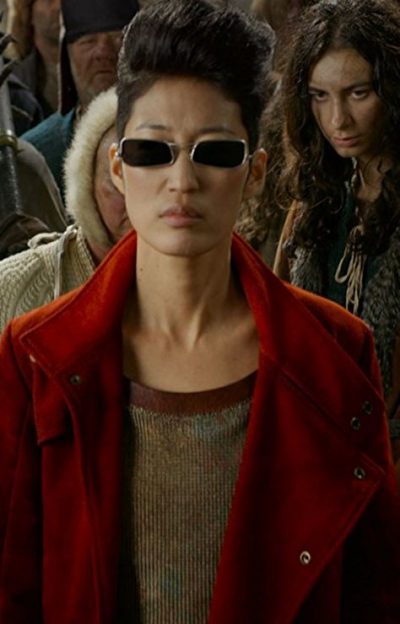 Dieter: An online reviewer got it right when he said this movie feels like the third or fourth movie in a series – the triumphant finale and an ultimate big bang. Unfortunately, without any build-up, you’re left to wonder why you should care, when a just introduced character bites the dust. It’s kind of a waste and I absolutely understand viewer frustration. But then again: It’s really not the screenwriters’ fault. This is how it was in the book. Maybe those in charge should not have stuck to it so closely? But they already took some liberties with the original, removing characters and story-arcs.
Dieter: An online reviewer got it right when he said this movie feels like the third or fourth movie in a series – the triumphant finale and an ultimate big bang. Unfortunately, without any build-up, you’re left to wonder why you should care, when a just introduced character bites the dust. It’s kind of a waste and I absolutely understand viewer frustration. But then again: It’s really not the screenwriters’ fault. This is how it was in the book. Maybe those in charge should not have stuck to it so closely? But they already took some liberties with the original, removing characters and story-arcs.
As late screenwriting legend William Goldman once wrote: “There is nothing worse than adapting a book for the big screen.” A book has time to develop characters – you don’t usually read a book in two hours – a luxury denied to movies. Inevitably, the question comes up of what to leave out. It really can’t be easy to adapt a book, especially one where a lot happens, as is the case here. For example, largely gone is the secondary couple, Valentine’s daughter Katherine (Leila George) and Bevis Pod (Ronan Raftery), a worker from the lower decks. In the book, chapters alternated between their story, and Hester + Tom, with occasional asides involving Valentine and Shrike). In the movie, we don’t get to see the slowly developing love story between Katherine and Bevis.
Mortal Engines offers a lot of spectacle and fascinating images over its runtime. But, like one of its big cities, the story moves relentlessly from set-piece to set-piece, and from action scene to action scene, hardly ever giving the audience time to take a breath. While we expect blockbusters today to move faster than in previous eras, it has become almost a forgotten art to construct a story or screenplay that allows for quiet. Those moments where you take the time to develop characters, their relationships to each other, have them explain themselves and their attitudes, or where they can expose themselves emotionally.
A good screenplay needs a rhythm: Ups and downs, moments of excitement and relaxation to make the journey enjoyable, like a well-timed roller-coaster ride. These moments are important for audiences – and even if they may not be aware of the need, they definitely miss them when they are not there. Unfortunately, Mortal Engines lacks these; maybe 3-4 times in the entire film, characters are allowed to be emotional and offer some insight into themselves. The rest of the time it’s “bang”, “rudder-rudder”, “peow” and “aawww”, perpetually accompanied by the adequate soundtrack of Junkie XL. I think a good movie should also have some scenes where the makers don’t feel the need to underlay them with music.
Jim: Having not read the book, I’m not qualified to offer much opinion in this area. But I do agree that this didn’t feel like the first entry. It literally begins with cities on wheels, hunting each other. Wait, what? I was thoroughly distracted, trying to figure out how the world got to that point. I get there was a war ‘n’ stuff. It still seems… a bit of a leap, shall we say. This kind of thing is easier to get away with in a book, where there’s not quite the same expectation that everything will necessarily “make sense” on page 1. If you lose your audience in a film, it’s almost impossible to get them back.
More generally, there’s no doubt about the problems adapting from the page to the screen. They are two different media entirely, and what works in one won’t necessarily in the other. Knowing that is essential, and why I don’t have much time for fans of, say, the Resident Evil games complaining about the movies being “different”. No kidding. If they weren’t, the films probably wouldn’t have become the successful franchise they did. But this is why buying the movie rights to a successful book is a minefield. Yes, it comes with a built-in audience. On the other hand, it comes with a built-in audience of critics!
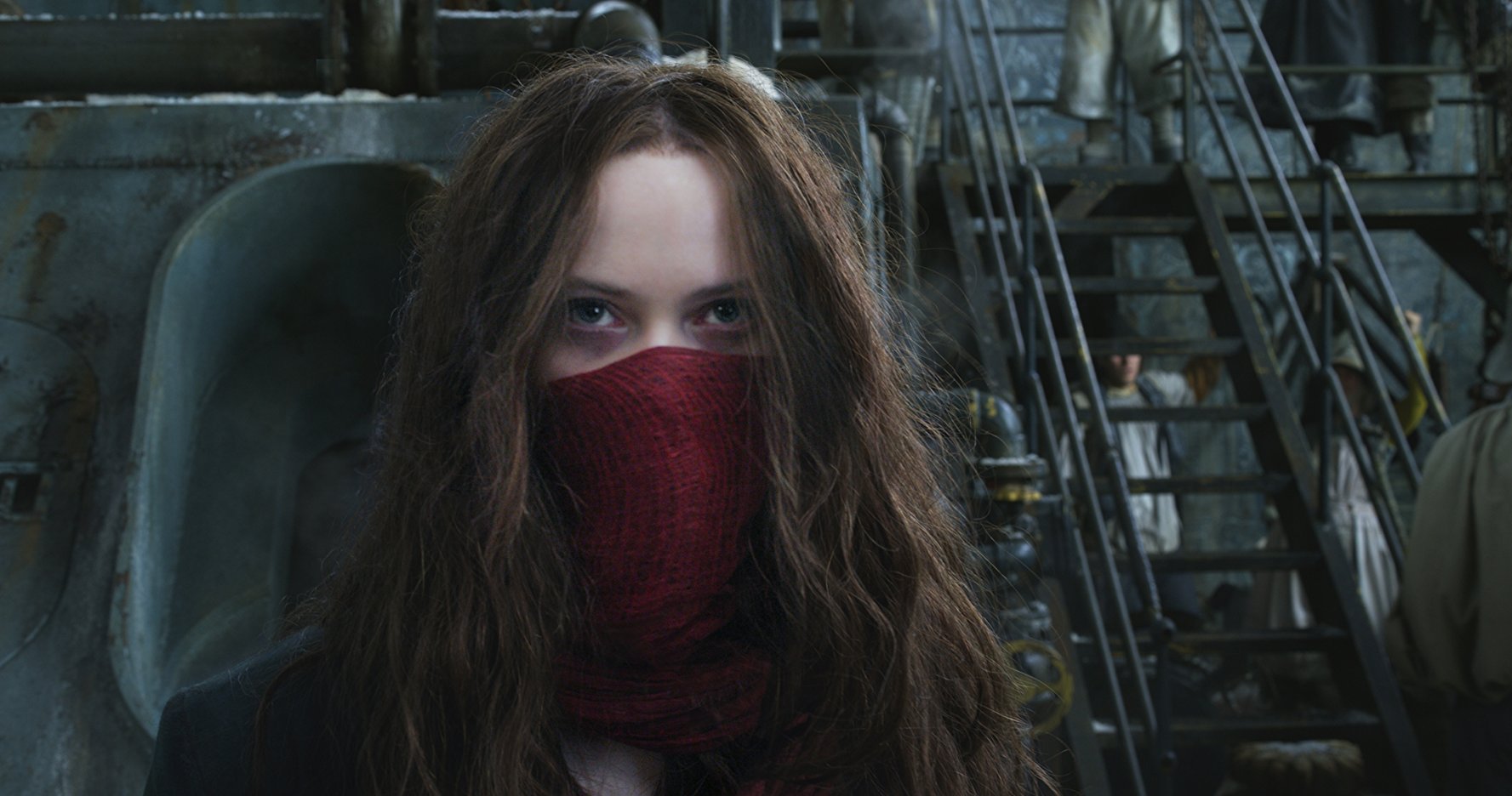
Indirect direction
Dieter: The film was directed by Christopher Rivers, mainly known for his work in special effects, and a protégé of Peter Jackson, Maybe Jackson wanted to help get his career as a director going? Or perhaps Jackson didn’t feel so eager to direct, considering the stress and problems he had with his two Middle Earth trilogies. Despite an underwhelming response to the Hobbit series, the studio prefered to advertise the movie with his name. A stained reputation is better than no reputation at all, I guess, and virtually no one had ever heard of Rivers.
I saw interviews with a very tired looking Jackson, which could probably generate hardly any less enthusiasm in a potentially interested viewer. Little more than, “I liked the book, so I made a film out of it. If enough of you watch it, the studio may order another one. Thank you!” How could these clips be approved by the marketing department?
I also noticed how everyone involved has been avoiding the “S-word”: “Steampunk”. It’s very much in that genre but even Jackson said something like “It’s not really steampunk. It may have elements of steampunk, but it’s not a steampunk movie.” My feeling is “steampunk” has a poor reputation among movie studios, as too many movies of that genre have flopped hard in the past. Need I say more than Wild Wild West? The League of Extraordinary Gentlemen and, to some extent, The Golden Compass, also show why studios distance themselves from this word.
I wonder if there might have been some studio meddling here, since this would probably have benefitted from being an hour or 30 minutes longer. More time to develop the characters and build a stronger emotional connection to them. But a 2-hour movie means more showings per day. A business decision, not necessary one that supported the storytelling!
Jim: Personally, I wonder when Peter Jackson is going to get to direct a narrative feature he wants to do? Rather than one forced on him by Guillermo Del Toro bailing, as with The Hobbit. His last such was The Lovely Bones, and that was a decade ago. I wonder if he’s “broken,” having gone over to documentaries, first about World War I and, next, The Beatles. Maybe he’s turning into Werner Herzog…
Anyway, Rivers’ background in effects seems obvious here, as the film feels a good deal more confident and on a former footing with the technical aspects than when the actors. This isn’t necessarily a bad thing: James Cameron, to this day, seems to be the same, and he’s done very well for himself. However, Cameron’s first feature didn’t go down in history as one of the biggest flops of the year, and Piranha II: The Spawning also cost considerably less money than Mortal Engines. Is this the biggest loss in a directorial debut? I can’t think of many rivals.
However, unlike Dieter, I didn’t feel the pace of the film was too much of a problem, and think Rivers did a good job of keeping the various balls in the air. Would it have benefited from a greater running time? Perhaps, though I’m not sure economics plays much of a part, since two-hour movies seems to be the norm – going longer does not appear to pose any economic problems.. If you look at the top US box-office hits last year, the shortest in the top six was The Incredibles, and it still ran 118 minutes. The average was 133 minutes. I can’t honestly say that having one fewer screening of Engines per day feels like it would have made much difference.
Acting up
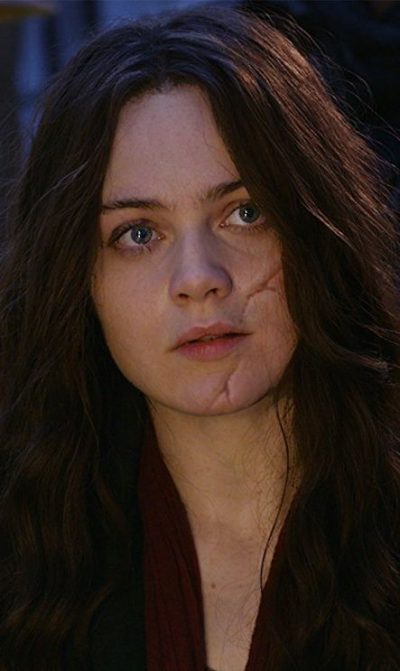
Hera Hilmar (what a name!) is much better as Hester Shaw than feared. The character could have become a parody of itself; my personal worry was that Hilmar would be too soft for the role. But that’s not the case: she gives a tragic character enough depth to be interesting, without overdoing it. The problem is a change from the book. There, her scar goes through half of her face, Hester having lost an eye and her nose is a mere stump. The disfigurement is why she constantly hides much of her face behind a red scarf. She has the scarf in the movie… but why? Film-Hester’s scars are hardly worth mentioning and don’t detract from Hilmar’s natural attractiveness. It’s kind of disrespectful to the original character and the audience.
On the other hand, Robert Sheehan, as Tom Natsworthy, seems to have been chosen mainly due to his big puppy dog eyes and general cuteness: I can easily see teen-girls going gaga over him. But, honestly, he appears a bit bland. Then it has to be said, the character was never especially interesting in the book to begin with, so once again criticism has to go back to the original author. The cyborg Shrike is played by Stephen Lang. While we rarely if ever see Lang’s “real” face, he is probably the most emotionally touching character in the movie. And he’s gone before we know it. Oh, movie, movie… what are you doing?
Weaving delivers his usual good villain performance here. However, the script has again decided to simplify things. In the book, Valentine is doing the bidding of his master, Mayor Magnus Chrome (played here by Patrick Malahide). Valentine is driven by fear he may lose the status he has carefully built as an outsider, and wants to secure his daughter Katherine’s safety. This gives the character at least some understandable motivations for his actions. Unfortunately, the movie ignores this completely: Valentine’s motivation appears to be little more than to show everyone he has the biggest gun of them all! Being evil for evil’s sake: it’s so passé…
Of particular interest to this site is cool Asian action-chick Anna Fang, played by stylish Korean actress/musician Jihae. She frees Tom and Hester from the slave traders and has a nice, almost classic duel with Weaving at the end. Fang comes across like the Steampunk-action-girl you’d like to find out more about… The film, however, has other plans. Though Philip Reeve’s new book in the universe, Night Flights, will fill that need, if you’re interested.
Jim: There’s no doubt, Hilmar is the engine which powers the film. Sheehan is blandness personified at an almost Twilight-like level, and there are almost no moments at which you are made to care for Tom. Indeed, he could have been excised from the film entirely, and it would have made little or no difference: this is Hester’s story, and she has a genuine character arc, something the “hero” isn’t given. The makers seem to realize this when it comes to the finale, as Tom is left on the sidelines, while Hester and Anna taking over. Perhaps they are the ones who should have been teamed up from the start?
I’d seen Jihae before, playing twin sisters in the Mars mini-series, but she makes for an excellent supporting character here. A spin-off franchise of her adventures and derring-do beckons. Er, or perhaps did beckon, before the main feature crashed and burned. However, I think in general actors tend to escape from bombs much better than those behind the camera. Even Tom Cruise has had his share of flops. Hopefully Hilmar will also be able to move on; Dieter will perhaps fight me over this, but I got a little Noomi Rapace vibe from her. Maybe it’s just the “Scandinavian actress” thing. That’s impressive enough in itself, considering English is not her first language.
I liked Weaving, though will always find it hard to see him without muttering “Mr. Anderson….” under my breath, ever time he speaks [which made parts of Lord of the Rings tricky to watch!]. I did understand Valentine’s motivations for what he does: he wants to ensure the survival of London, by any means necessary, and if that involves taking from others, so be it. I guess whether that inevitably makes him the “bad guy” may depend on your philosophical perspective, since has been (and continues to be) the basis of Western civilization. Which brings us nicely to…
A partly political broadcast
Dieter: There’s a degree of politically correct representation going on, with the “anti-tractionists” being multi-ethnic and diverse, while London – differently from today – being mainly Caucasian, with the exception of Colin Salmon as museum director Pomeroy. While I personally don’t mind that, it was quite obvious, but thankfully without directly blurting out some social justice message. And then – I think I’m starting to sound like a broken record – it’s the way it was in the book.
Jim. In contrast – perhaps due to not having read the book – I felt the film did contain unsubtle attempts at political commentary, with the West literally the bad guy here. It’s not just Thaddeus Valentine: when his weapon causes carnage in the East’s multicultural society and blasts a hole in the wall, the population of London is shown cheering wildly. It’s as subtle as showing 9/11 footage, then cutting to Muslims dancing in the streets. I also noted an odd announcement as the residents of Salzhaken are embarking into London: “Be aware, children may be temporarily separated from parents.” Hmm, Trump reference much? Yet ironically, the film works as an excellent advertisement for the merits of a good, strong wall, keeping out the foreign hordes who are seeking to plunder your region’s wealth. Oops…
In the end…
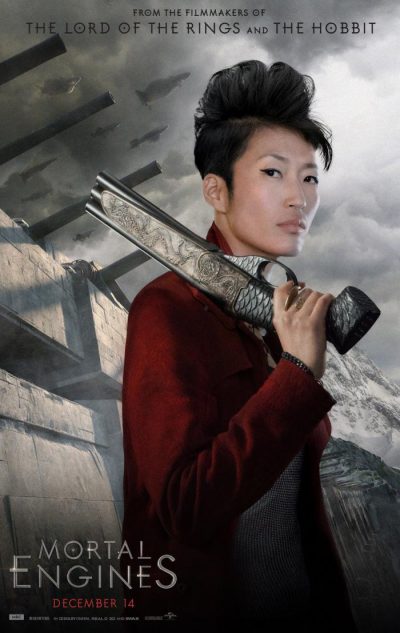 Jim: I’m reminded of Sky Captain and the World of Tomorrow, Kerry Conran’s 2004 film. Both were debuts, effects-heavy action fantasies with an aerial bias… and both proved box-office failures. You could even draw a line between Angelina Jolie’s Commander Franky Cook as an ancestor of Anna Fang. Sky Captain has become something of a cult item, so perhaps there’s hope for Engines. Though not as groundbreaking in terms of its FX, it does still have a strong sense of visual style. Rivers keeps the camera almost in perpetual motion, swooping around and through the scenes and characters.
Jim: I’m reminded of Sky Captain and the World of Tomorrow, Kerry Conran’s 2004 film. Both were debuts, effects-heavy action fantasies with an aerial bias… and both proved box-office failures. You could even draw a line between Angelina Jolie’s Commander Franky Cook as an ancestor of Anna Fang. Sky Captain has become something of a cult item, so perhaps there’s hope for Engines. Though not as groundbreaking in terms of its FX, it does still have a strong sense of visual style. Rivers keeps the camera almost in perpetual motion, swooping around and through the scenes and characters.
It’s this aspect which is the most successful, the kind of film I can see myself picking up on Blu-Ray eventually (albeit at the $5.99 level!), for the spectacle. While the setting needs more explanation, as a physical entity, there are no such shortcomings, and it does work nicely as cinematic eye-candy. However, there are too many problems elsewhere, from a poor choice of hero through a forgettable soundtrack [really, techno for steampunk?], for this to be regarded as an all-round success. That said, nor did it deserve to fail so spectacularly, and deserves praise for at least offering something different in style and setting – if not story.
Dieter: As a large-budget entertainment blockbuster, this delivers the required spectacle, visuals and big bangs, and there’s hardly anything technical you could complain about. The problem is a script which freely copies well-known tropes, elements and plots that we have seen far too often in similar blockbusters. This is indeed a negative, unless you are a teen, haven’t seen many of these movies and don’t know Star Wars! The screenplay also wasn’t able to adapt the book intelligently enough. While it managed to capture the basic plot adequately, not leaving anything essential out, I must say a lot of the decisions didn’t just simplify the story, they dumbed it down. I’m sorry to say, the team that brought us Lord of the Rings could have used a hand there.
The actors mostly give competent to good performances. It’s not their fault if the characters are bland, and some dialogue is as flat as if a rolling city drove over it! I particularly “bought” Hera Hilmar in her role. It’s only her second big film, after Inferno, and I would like to see her, as well as Jihae, again. Sadly, maybe that chance has gone. Certainly, steampunk still awaits its magnum opus. This could have been it. While it isn’t, Mortal Engines is still much better than previous attempts in this specific sub-genre.
This rolling city epic disappoints, because I feel it could have been and should have been better. However, if you are just here for some big colourful loud screen spectacle you could fare much worse. But then, better, too. At least Hester had a very realistic view on life at the end of the book: “You aren’t a hero, and I’m not beautiful, and we probably won’t live happily ever after. But we’re alive, and together, and we’re going to be all right.”
Dir: Christian Rivers
Star: Hera Hilmar, Robert Sheehan, Hugo Weaving, Jihae
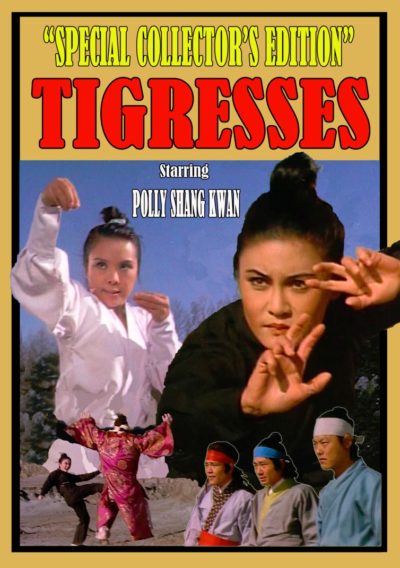 After their parents are killed by Ji-Gyeum Yoon (Kim Y-i), who wants to take over their father Sung’s position, sisters Su-Yung and An-Yung are split up and sent off for their safely, each owning half of a jade pendant. Fifteen years later, An-Yung (Shang Kwan) begins to take her vengeance on the usurper – not just physically, but also waging psychological warfare, sending him notes to ensure he knows he is being targeted, although not initially why or who. Though I’m a little surprised Yoon doesn’t figure it out immediately, given he’s still so paranoid about Sung’s daughters coming out, he freaks out when left alone with a maid, stating the position given in the tag-line above.
After their parents are killed by Ji-Gyeum Yoon (Kim Y-i), who wants to take over their father Sung’s position, sisters Su-Yung and An-Yung are split up and sent off for their safely, each owning half of a jade pendant. Fifteen years later, An-Yung (Shang Kwan) begins to take her vengeance on the usurper – not just physically, but also waging psychological warfare, sending him notes to ensure he knows he is being targeted, although not initially why or who. Though I’m a little surprised Yoon doesn’t figure it out immediately, given he’s still so paranoid about Sung’s daughters coming out, he freaks out when left alone with a maid, stating the position given in the tag-line above.




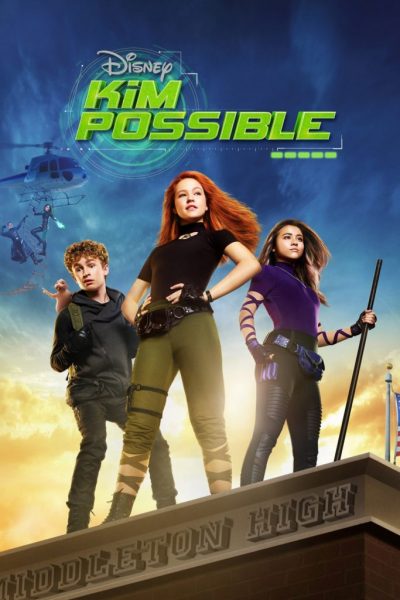 The new trend for Disney appears to be, live-action version of their beloved classic movies. This year alone, we can expect to see Dumbo, Aladdin and The Lion King, with Mulan to follow in 2020. A possible stalking horse for this was the live-action version of (somewhat) beloved TV series, Kim Possible, which ran for four seasons from 2002-07. It was pretty good, likely peaking with TV movie
The new trend for Disney appears to be, live-action version of their beloved classic movies. This year alone, we can expect to see Dumbo, Aladdin and The Lion King, with Mulan to follow in 2020. A possible stalking horse for this was the live-action version of (somewhat) beloved TV series, Kim Possible, which ran for four seasons from 2002-07. It was pretty good, likely peaking with TV movie 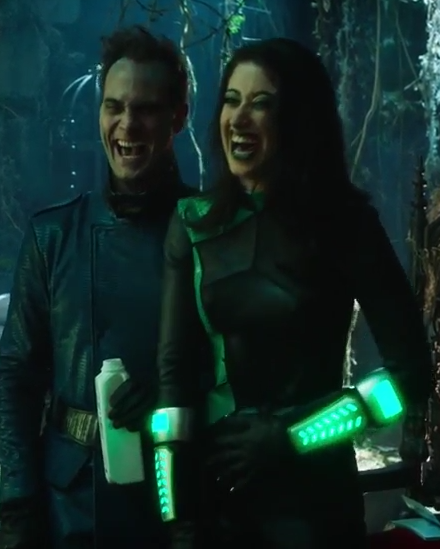 Instead, however, there’s a really horrible plot about Kim befriending Athena (Wilson), another new student. I’m sorry, when did Kim Possible become a relationship drama? Jealousy of Athena – despite her being super-annoying – causes Kim to suffer self-doubt, and fail when she is needed most… blah blah blah. Awful scripting, the portrayal of their relationship is sub-juvenile pap, which I’m sure would turn the stomach of any actual high-schooler. Worse, it goes beyond “flawed”, making the heroine weak and no longer heroic. And what’s with Kim being obsessed with joining the school’s soccer team? She was a
Instead, however, there’s a really horrible plot about Kim befriending Athena (Wilson), another new student. I’m sorry, when did Kim Possible become a relationship drama? Jealousy of Athena – despite her being super-annoying – causes Kim to suffer self-doubt, and fail when she is needed most… blah blah blah. Awful scripting, the portrayal of their relationship is sub-juvenile pap, which I’m sure would turn the stomach of any actual high-schooler. Worse, it goes beyond “flawed”, making the heroine weak and no longer heroic. And what’s with Kim being obsessed with joining the school’s soccer team? She was a  Dieter: ★★★½
Dieter: ★★★½ My theory is this: A potential cinemagoer sees a trailer and immediately decides whether or not they will like a movie – or at least give it a chance. And it’s usually not a rational choice, just a gut feeling, a kind of “I like it, that looks good / funny / exciting,” or “Nah, that’s nonsense / stupid / don’t like that actor / actress”, etc. Afterwards people try to rationalize why, and come up with a lot of different reasons that – when looked more closely at – are not that logical at all. I think this also is true for a lot of reviewers.
My theory is this: A potential cinemagoer sees a trailer and immediately decides whether or not they will like a movie – or at least give it a chance. And it’s usually not a rational choice, just a gut feeling, a kind of “I like it, that looks good / funny / exciting,” or “Nah, that’s nonsense / stupid / don’t like that actor / actress”, etc. Afterwards people try to rationalize why, and come up with a lot of different reasons that – when looked more closely at – are not that logical at all. I think this also is true for a lot of reviewers.
 Dieter: You can already predict how this will develop – and that’s one of the big shortcomings: We know this plot and many of its tropes too well, leaving too little of any element of surprise. For some people that’s already enough to discard the movie; though I understand that, I’d always argue it’s not the best reason. Still, there are elements reminding me directly of Hayao Miyazaki classics Laputa: Castle in the Sky and Howl’s Moving Castle; the Mad Max-movies; a Terminator-like character; a female rebel who’d probably feel at home in The Matrix, and a little bit of Terry Gilliam for seasoning. Heck, we even get a classic slave-trading market scene I immediately associated with those beloved old pirate movies from HW’s golden era!
Dieter: You can already predict how this will develop – and that’s one of the big shortcomings: We know this plot and many of its tropes too well, leaving too little of any element of surprise. For some people that’s already enough to discard the movie; though I understand that, I’d always argue it’s not the best reason. Still, there are elements reminding me directly of Hayao Miyazaki classics Laputa: Castle in the Sky and Howl’s Moving Castle; the Mad Max-movies; a Terminator-like character; a female rebel who’d probably feel at home in The Matrix, and a little bit of Terry Gilliam for seasoning. Heck, we even get a classic slave-trading market scene I immediately associated with those beloved old pirate movies from HW’s golden era! Dieter: An online reviewer got it right when he said this movie feels like the third or fourth movie in a series – the triumphant finale and an ultimate big bang. Unfortunately, without any build-up, you’re left to wonder why you should care, when a just introduced character bites the dust. It’s kind of a waste and I absolutely understand viewer frustration. But then again: It’s really not the screenwriters’ fault. This is how it was in the book. Maybe those in charge should not have stuck to it so closely? But they already took some liberties with the original, removing characters and story-arcs.
Dieter: An online reviewer got it right when he said this movie feels like the third or fourth movie in a series – the triumphant finale and an ultimate big bang. Unfortunately, without any build-up, you’re left to wonder why you should care, when a just introduced character bites the dust. It’s kind of a waste and I absolutely understand viewer frustration. But then again: It’s really not the screenwriters’ fault. This is how it was in the book. Maybe those in charge should not have stuck to it so closely? But they already took some liberties with the original, removing characters and story-arcs.

 Jim: I’m reminded of Sky Captain and the World of Tomorrow, Kerry Conran’s 2004 film. Both were debuts, effects-heavy action fantasies with an aerial bias… and both proved box-office failures. You could even draw a line between Angelina Jolie’s Commander Franky Cook as an ancestor of Anna Fang. Sky Captain has become something of a cult item, so perhaps there’s hope for Engines. Though not as groundbreaking in terms of its FX, it does still have a strong sense of visual style. Rivers keeps the camera almost in perpetual motion, swooping around and through the scenes and characters.
Jim: I’m reminded of Sky Captain and the World of Tomorrow, Kerry Conran’s 2004 film. Both were debuts, effects-heavy action fantasies with an aerial bias… and both proved box-office failures. You could even draw a line between Angelina Jolie’s Commander Franky Cook as an ancestor of Anna Fang. Sky Captain has become something of a cult item, so perhaps there’s hope for Engines. Though not as groundbreaking in terms of its FX, it does still have a strong sense of visual style. Rivers keeps the camera almost in perpetual motion, swooping around and through the scenes and characters.